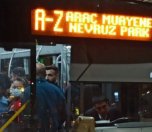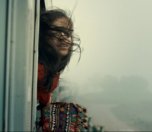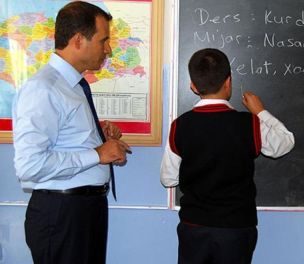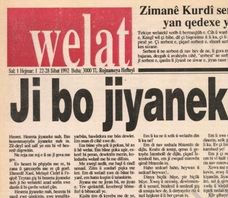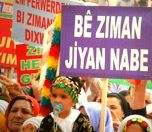* Photo: From the movie "On the Way to School"
Click to read the article in Turkish
Yesterday, February 21, was the International Mother Language Day. In Turkey, education is offered in only one language while there is a multilingual life: Kurds, Arabs, Laz, Hamsheni people...
The children of these peoples, among several others, learn their own languages at home, but they are educated in Turkish when they start school at the ages of 6-7. Encountering Turkish perhaps for the first time in their lives, these children are traumatized in various ways.
Against this background, Helin Yılmaz from Pirha speaks with Marmara University student Cansel Tan and Melik Çelik, Jinnews editor Roza Metina and young activist Sevda T. about their own experiences.
Tan and Çelik received their education in different villages in eastern Erzurum province's Karayazı district. When Tan went to school for the first time for enrollment, he was subjected to an interview.
'You are gonna learn this language'
Cansel Tan remembers that during this interview before starting school, the children 'who could not speak Turkish properly' were asked to enroll in school the next year: "They asked me something in Turkish. I couldn't answer properly. I couldn't understand it anyway."
Tans says that he had difficulties in his first year at school. Noting that teachers would inflict violence as well, he remembers that one time, he and his friends were held in the classroom until 9 in the evening though the class ended at noon because they could not spell the words correctly:
"We apparently couldn't read them properly. The teacher kept us at school till 9. I remember him saying, 'You are gonna learn this language.' We were so scared. Our families could barely come and take us from school."
Tan stresses that it was through such practices that he learned Turkish. He notes that after learning it, they received a very simplified education oriented towards improving their Turkish, adding that when they went back home, they had difficulties in finding sources in Turkish:
"When we came back home, we would read the subtitles of news. We didn't have other sources. I remember having made great efforts. I could luckily learn this language at the end of the 1st year."
Coming to İstanbul after finishing primary school, Tan saw that the education there was very different from the one in his village in Erzurum. He says that when he came to İstanbul as a 6th year student after the simplified education in Erzurum, he had great difficulties in adapting to the school:
"The education given there at the 3rd class was apparently given during the 1st in İstanbul. That we started the school without knowing the language in fact caused us to receive a preparatory education in the 1st year. While I was the most successful student in the village, it took me three years to get used to the school in İstanbul. Those years passed with both an adaptation to society and again a problem with the language."
Dreams in another language
Cansel Tan is also a pious person. He remembers that he was stronger in faith when he was a child. When he dreamt or said prayers as a child, he would speak in Kurdish. But after starting to learn Turkish, all of these have become Turkish: "Interesting as it may sound, when I imagine myself in the village, the incident-context is in Kurdish; the place I find myself in changes the language in my mind. When I go to the village, I don't speak any Turkish at all. Despite all the time that has passed, I sometimes forget the Turkish words and ask, 'How is it called in Turkish?'"
Kurdish child treated as 'dumb'
Melik Çelik also remembers having great difficulties in the 1st year at school. One time, he wanted to say he forgot to do his homework, but as he didn't know how to say it in Turkish, he couldn't answer: "At the 2nd class, I was supposed to write 'ağız' (mouth in Tr.) in the blank, but I wrote 'dev' (giant in Tr.) instead. I wrote in Kurdish as I didn't know its Turkish equivalent, either."
He says that he had such difficulties until his 3rd year at school, adding that he didn't forget Kurdish despite the obligation to learn Turkish: "Because Turkish was spoken for 5-6 hours at school. But, at home, so for the rest of our lives, we spoke Kurdish. This was of course a result of village life."
Sevda T. also went to the primary school in Erzurum. She expresses similar difficulties: "When I started school, I could neither speak nor understand Turkish. Teachers would get very angry for this reason; they would hurl insults and inflict violence. I didn't want to go to school. I would throw my bag into the stream after school so that they would not send me there again."
She adds, "When I came back home, my mother would beat me this time because I threw my bag into the stream and ripped up my notebooks. I was also beaten at school because I didn't speak Turkish. One time, a friend of mine wetted oneself because s/he didn't know how to speak. The teacher came, took her/him by the ear and took her/him out of the classroom. In my fourth year, I could barely express myself. The teacher would always call us 'dumb'. As I didn't know what it meant, I would say this to everyone."
Children feel safe in their mother language
Jinnews editor Roza Metina went through what Cansel, Melik and Sevda went through. Her first year at school was also like a preparatory class for foreign language education. She remembers that despite having difficulties herself, there were her other friends who were having more difficulties than her and were beaten up by teachers for this reason:
I remember it very well. Some teachers a few neighborhoods away from us banned children from speaking Kurdish. As you cannot receive education in your mother language in the first years of school, your attitude to school changes and you come to the conclusion that school is not a beneficial and safe place for you. Because children see their own mother language as a shelter where they feel safe. We, Kurds, have always been deprived of this shelter and we have come to forget several Kurdish words as we have come under the influence of Turkish.
Metina says that despite these policies of assimilation, she didn't abandon her own stance or struggle and notes that there are several writers who write in their own mother language. She defines mother language as the safe shelter and existence of people. For this reason, Metina says, she has been resisting the policies of assimilation.
Rediscovering one's mother language
Remembering how she has reunited with her mother language as she didn't know how to read and write in Kurdish, Metina says:
"After I graduated from high school, I learned how to read and write in Kurdish at the KURDÎ-DER, which has been closed by a Statutory Decree. After the course, I have improved my mother language Kurdish by reading books and doing research in Kurdish. Now, I pay considerable attention to not being influenced by Turkish while speaking Kurdish."
Metina has started writing and publishing books in her own mother language over the years. Concluding her remarks, she says:
"As my service for my mother language is a conscientious responsibility, I felt an inner peace to an extent. It is indispensable for every Kurd to not forget that feeling this inner peace in the end is the result of a great struggle, that they lay claim to their mother language and develop self-defense against this wheel of assimilation. As in the case of every other field, the force of unity that Kurds should never abandon comes to the fore again in order to protect and keep alive the Kurdish language.
"This can be done if we wage a struggle together and we can raise our struggle against the system that wants to destroy our language." (AEK/SD)





